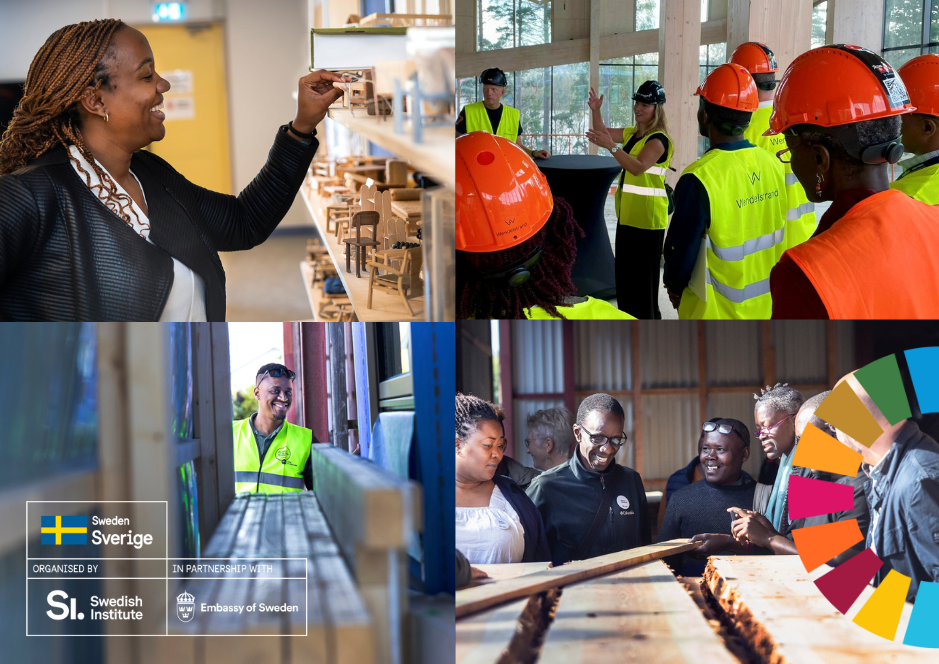‘Woodlife Business’ is a project developed by The Swedish Institute in collaboration with the Swedish Embassy in Nairobi and a network of partners. The project takes a starting point is the idea to match the needs for sustainable construction in East Africa with Swedish expertise across the forest-based value chain. The group of participants, included forest producers, manufacturers, architects, consultants, property developers, and government representatives. Together, they visited sites and companies based in and around Växjö, Nässjö, Varberg and Göteborg, each visit offering different perspectives tailored to the varied interests and professional backgrounds of the group.
Caroline Vicini, ambassador of Sweden to Kenya, explains the project’s initiation:
– We were among many Swedish embassies in the world showing the popular exhibition ‘Woodlife Sweden’, which was developed by SI in partnership with Architects Sweden and Swedish Wood. The Embassy placed the message of the exhibition in the context of a country needing to expand its forest cover and providing housing for a rapidly growing population. After three years of domesticating the idea of constructing in wood we felt ready for a business-oriented study tour.
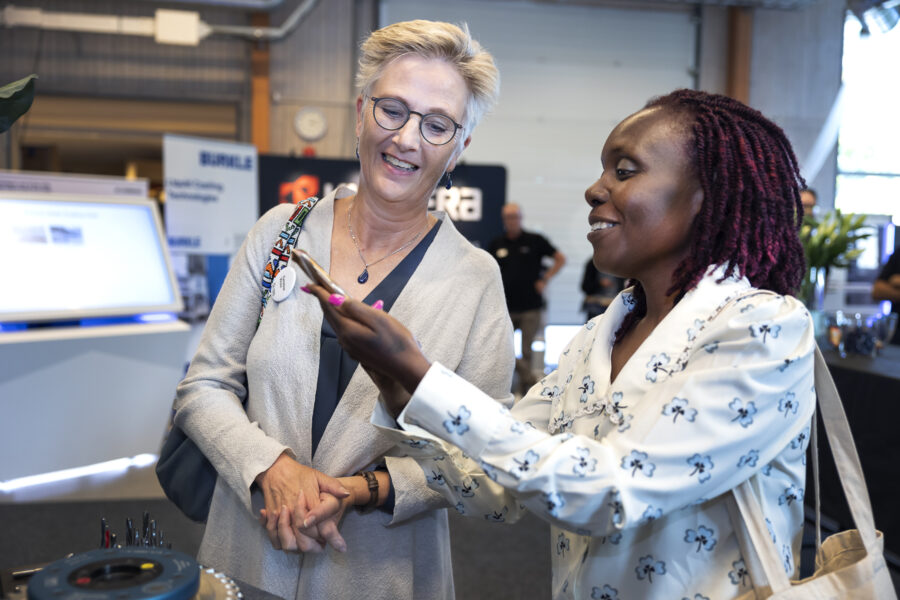
The tour kicked off in Växjö, visiting some of the city’s famous housing developments built in wood, The group visited sites like the Landsbro Timber sawmill and the new cross-laminated timber factory at Södra Building Systems in Värö. The tour’s educational component was highlighted through sessions with leading researchers at Linnaeus University, as well as a visit to Ryssby Gymnasiet, where high school students demonstrated Sweden’s integrated approach to forestry and sustainable construction.
Reflecting on the tour, Yvonne Nyokabi, programme manager at UNDP in Nairobi, shared:
– In Kenya, as in many parts of Africa, wood has been an underutilized resource. But here in Växjö, the use of wood has evolved beyond just energy production to play a central role in construction – a concept we’re now curious about promoting back home as we explore opportunities for the future.
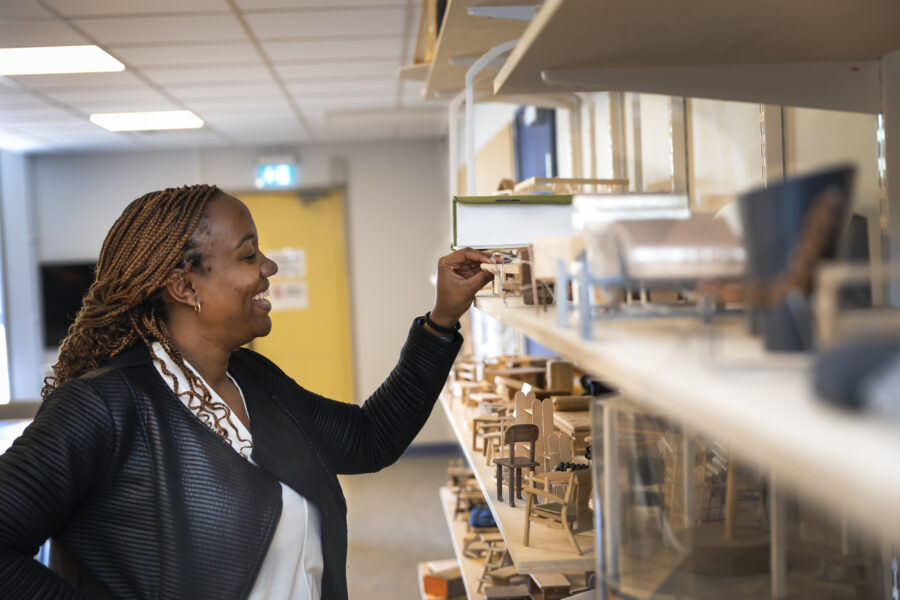
Johnpaul Muwanika, a senior structural engineer working for a Kenyan company specializing in green building design, elaborates on the benefits of cross-sector interaction during the visit:
– The biggest value for me this week has been meeting actors across the full value chain from my own country and region. The experience this week offers a platform for camaraderie among us, which will make future discussions and collaboration much easier.
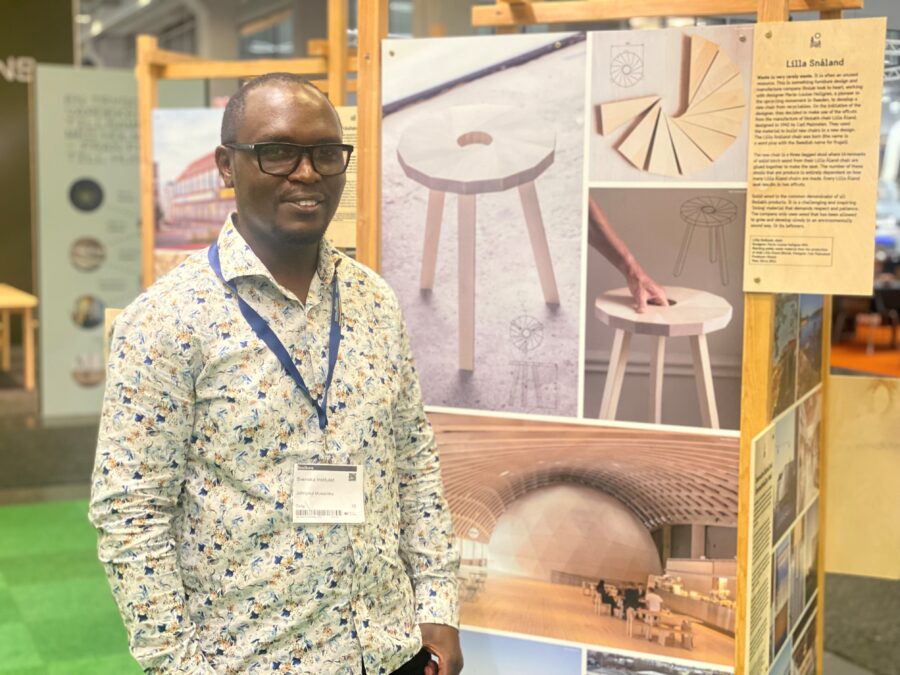
As the week concluded, the sentiment among the participants was one of hope and anticipation. The exchange of ideas and firsthand experiences has brought them knowledge, inspiration and a network that can help influence sustainable change back home. Discussion on new concrete collaborations has already started, both among participants and with Swedish companies.
Adiam Tedros, Head of Unit for Scholarships and Leadership programs at the Swedish Institute, highlighted the initiative’s broader set of goals:
– The primary goal of the initiative is to offer knowledge, inspiration and a network to strengthen capacity among participants. Our aspiration is also to create value for the Swedish ecosystem by offering new connections to emerging markets and opportunities. We are excited about the opportunity to learn from participants and from partner feedback to understand if and how to best develop this concept further.
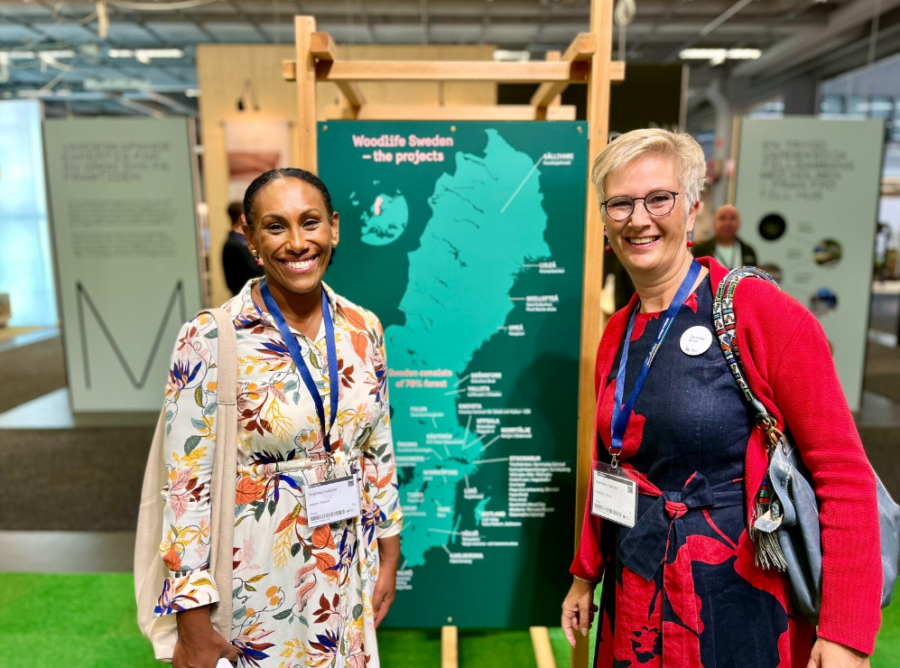
Caroline Vicini concludes by emphasizing the central element of co-creation and collaboration:
– This project has a big group of important contributors and partners. We are happy and deeply grateful for the team effort in bringing this initiative to life and wish to thank everyone involved. We look forward to exploring the way forward, further strenghtening Swedish exchange and partnership in the joint effort to drive the green transition.
About Woodlife Business and Woodlife Sweden
‘Woodlife Business’ is a pilot initiative designed to forge international relations with Sweden’s vibrant ecosystem across the forest sector value chain. By sharing Swedish expertise and experiences, the aspiration is to build capacity and support sustainable development, as well as raise awareness of Swedish organisations and companies that might be able to offer services and partnership.
The concept is a business oriented extension of ‘Woodlife Sweden’, an exhibition developed by SI highlighting 48 contemporary wooden projects in different scales from all over Sweden. The projects have been selected to visualise how architecture, design and urbanism can help reduce the climate impact of buildings and products, and impact development in line with the 17 Sustainable Development Goals (SDGs).
Read more:
Woodlife Business
Woodlife Sweden
